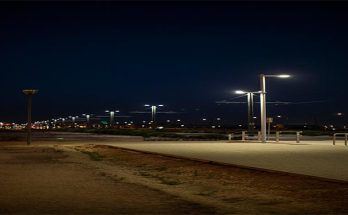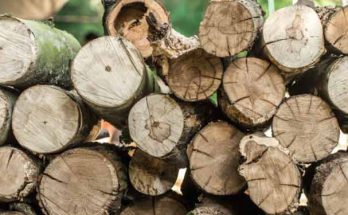 UL, a global leader in safety research, today announced a collaboration with Watts of Love and the Acorn Foundation to deliver Watts of Love’s solar-powered lights to communities in South Africa. The UL-certified lights were handed directly to inhabitants of Olievenhoutbosch Extension 24 in Centurion, Gauteng, South Africa, by a team of UL employees from the company’s Johannesburg office, along with leadership and staff from Watts of Love and the Acorn Foundation.
UL, a global leader in safety research, today announced a collaboration with Watts of Love and the Acorn Foundation to deliver Watts of Love’s solar-powered lights to communities in South Africa. The UL-certified lights were handed directly to inhabitants of Olievenhoutbosch Extension 24 in Centurion, Gauteng, South Africa, by a team of UL employees from the company’s Johannesburg office, along with leadership and staff from Watts of Love and the Acorn Foundation.
The solar-powered lights are designed to reduce reliance on hazardous and expensive kerosene as a light source, so enhancing the health and well-being of each receiver and their family. The lights were given out in conjunction with a financial literacy programme that educates people how to turn their kerosene savings into long-term income.
“This one innovative tool, a solar-powered light source, can help protect children and adults from dangerous fires and toxic fumes, secure a safer and more prosperous home environment and elevate equity. It also reduces greenhouse gas emissions and indoor air pollution,” said Barbara Guthrie, vice president of Corporate Sustainability at UL.
Kerosene lamps are used by about 1.3 billion people throughout the world to light their homes. Kerosene is a hazardous substance that can cause burns. In developing nations, unintentional intake of the liquid is the leading cause of child poisoning. Household kerosene usage has been related to reduced lung function, asthma, cancer, and an increased risk of infectious infections, according to the National Institute of Environmental Health Sciences. Kerosene is expensive, according to the World Bank, and accounts for 30 percent to 40 percent of a family’s income. Families’ lifestyles alter dramatically as a result of illumination, contributing to safety, convenience, and financial stability.
Solar-powered lamps, on the other hand, are a safer alternative. Watts of Love, a charity organisation based in the United States, provides this clean energy light to those living in some of the world’s poorest areas. Each light provides a safe and secure atmosphere, as well as a road to a self-sufficient and sustainable future. UL is committed to providing pro gratis solar lighting product certification for the solar-powered lights designed, manufactured, and distributed by Watts of Love, in addition to assisting in the distribution of solar-powered lights in South Africa.
“The testing, inspection and certification of products to promote safe, secure and sustainable living and working environments for people is core to UL’s principles,” Guthrie said. “We are honored to support the Watts of Love vision and help make sure their product is safe for global distribution.”
Founded in 2012, Watts of Love helps empower individuals to raise themselves out of the darkness of poverty through solar lighting. The organization has a proven scalable and sustainable approach that equips households with a solar light to eliminate costly light alternatives so people can reinvest their savings. Using a unique financial literacy curriculum, Watts of Love trains light recipients on how to save, invest, and build for the future. The program also includes helping empower people to identify their dreams, set goals and take ownership of where to direct their savings.
“At Watts of Love, we know that people living in poverty want to give their families a better life,” said Nancy Economou, founder and CEO of Watts of Love. “We are thrilled to partner with UL and the Acorn Foundation in South Africa to help break this cycle of poverty and help build a pathway for a brighter future.”
The collaboration between UL, Watts of Love, and the Acorn Foundation aims to bring long-term change to the Olievenhoutbosch Extension 24 neighbourhood in Centurion. Acorn Foundation assists South Africa’s most vulnerable communities while also participating in activities that assist individuals in achieving self-sufficiency.
“We applaud UL and Watts of Love for stepping forward to give their resources and their time to change the lives of others in South Africa,” said Sue Smit, CEO of Acorn Foundation. “Addressing the root causes of poverty means that we can help empower adults to play a more meaningful role in the lives of their children and communities.”


